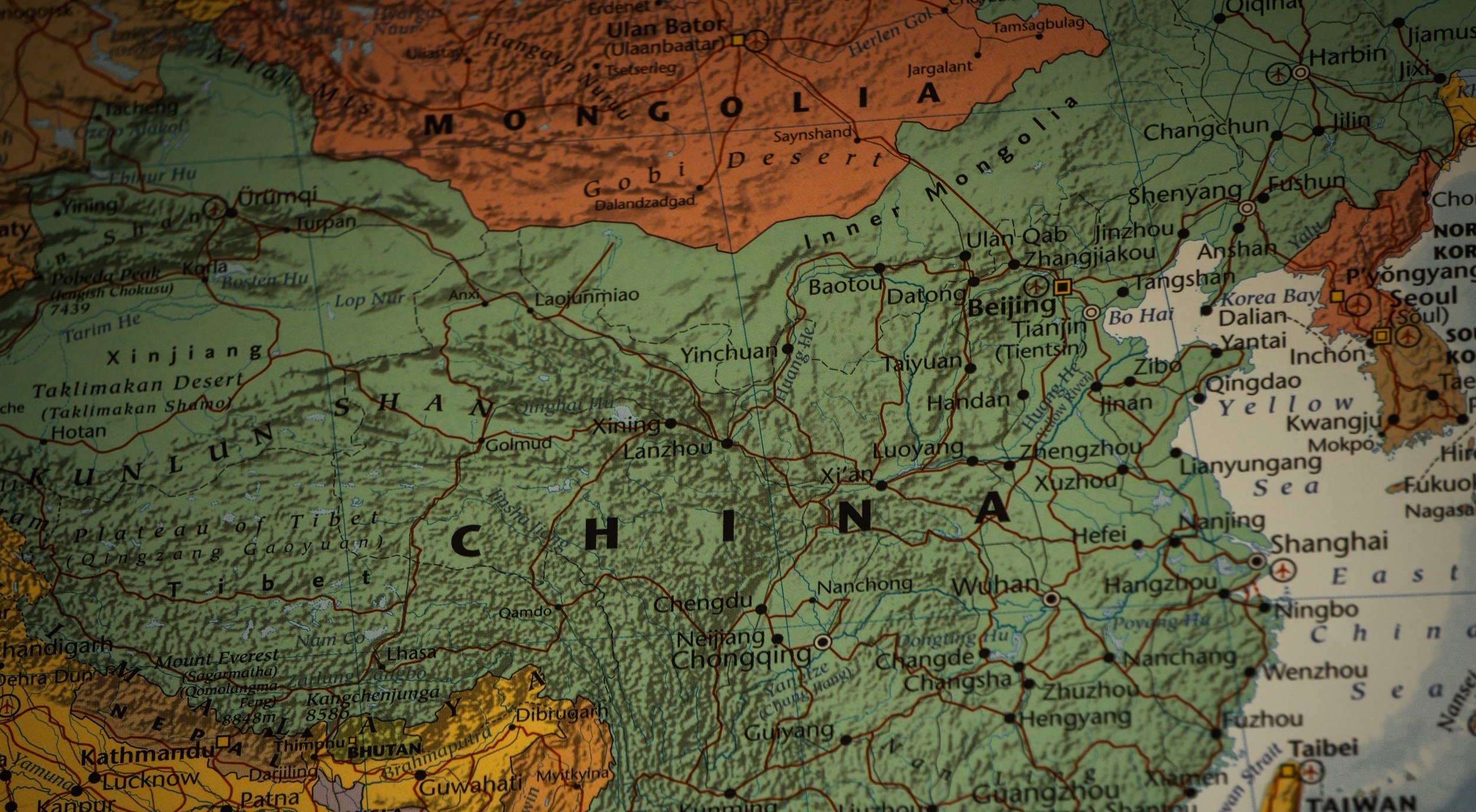All told, by looking at the development of the Three Warfares concept and its implementation in the context of disputes in the South China Sea, it becomes clear that China does not merely conduct political warfare in pursuit of various individual geostrategic objectives. Rather, it is fundamentally integrated within China’s broader maritime strategy, which, in turn, translates into China’s grand strategy of national rejuvenation. This deduction is further underpinned by China’s long strategic legacy, which firmly resembles Kennan’s definition of political warfare. Chinese political warfare should, therefore, not be considered separate from the larger strategic context because China’s conception of national strategy incorporates all levers of comprehensive national power, as defined by Xi Jinping himself, leading to the symbolic characterization of Chinese political warfare as a strategic tautology, as political warfare seems fundamentally inherent within Chinese strategic thinking.
#Reviewing The Avoidable War
All told, Kevin Rudd’s The Avoidable War is very much worth the time and effort. Through a series of missteps in execution, it takes Rudd a while to get the reader onboard with his topic. Once there, however, the information provided is valuable, and Rudd’s perspective from personal experience does give his words an air of authority in these matters. For those starting out on their journey to understand what is arguably the world’s most important contemporary competition, this book is a fine place to begin.
What Happens If Great Powers Don’t Fight Great Wars?
The proper lesson for us today to draw from history is that conflict abhors a vacuum, and threats will take advantage of whatever domain is available. Certainly an argument should be made for increasing traditional lethality in the force, but must that come at the expense of other required capabilities? If we believe that wars are prevented in competition and that adversaries will use all available ways and means in conflict, then the Army must consider diverse solutions to deter and win in both Large-Scale Combat Operations (LSCO) and non- LSCO Multi-Domain Operations
Operationalizing Strategic Empathy: Best Practices from Inside the First Island Chain
To operationalize the concept of strategic empathy, this article argues that strategic leaders must appreciate three critical factors: geography, history, and domestic politics. These three factors are the pillars of the framework employed by U.S. Army Japan, a theater-strategic headquarters in the Indo-Pacific theater.
Strategic Ambiguity Out of Balance: Updating an Outdated Taiwan Policy
In the 1970s, China’s Chinese Communist Party (CCP) deferred resolving the Taiwan question—invading Taiwan to defeat the Kuomintang (KMT) and claim that territory—because it prioritized achieving economic development that required access to and integration with international trade and capital markets. Meanwhile, the U.S’ strategic ambiguity posture sought to stabilize the Taiwan Strait with dual deterrence of both Chinese attack and Taiwanese declaration of independence. This policy rested on two premises—that China would remain committed to peaceful and non-coercive merger, if any, and that Taiwan’s independence was not essential to American foreign policy interests—neither of which holds today.
SEA-Merica 2040: Leveraging Climate Change to Win Friends and Influence the South China Sea
China’s excessive maritime claims in the SCS destabilize and undermine the balance of power in Southeast Asia. The best way to achieve a free and open SCS is a peaceful strategy that nests the common needs of the SCS Five within U.S. security interests and capabilities, all without requiring modification of Chinese behavior for success. SEA-Merica 2040 does the job.
Viewing Russia’s Actions Through the Lens of Imperialism: #Reviewing Leo Blanken’s Rational Empires
The literature on international security for the last three decades has primarily focused on the twin problems of terrorism and insurgency as the principal threats to the global status quo, and in doing so has neglected the role of conquest as an instrument within great power competition. The emerging era of bare-knuckled territorial aggrandizement by revisionist great powers, therefore, has largely caught the academy underprepared. Given this, I offer a ten-year anniversary review of a book that could assist in shaping our understanding of the changing nature of the international system today.
Hungry Like the Wolf: Territorial Conquest and Great Power Competition in the New World
Russia and China could succeed in weakening American influence in its far abroad and security in its near abroad through reliance on tried-and-true hybrid war/grey zone tactics. These indirect maneuvers are cheaper and easier to orchestrate under the U.S.’s nose than direct military operations and have the asymmetric effect of maximizing the impact of a minimal investment, stretching the power and reach of weaker powers confronting more powerful rivals.
Shackled by Doctrines: Why Western Strategists Need to Start Taking Ancient Chinese Texts Seriously
The West should engage these texts not only to better understand China, but also ourselves. The continuous strife and uncertainty of the Warring States period propelled the great thinkers of that age to develop far reaching analyses of fundamental issues facing societies of all eras and cultures. Those writers sparked debates that deal with universal issues about human nature, governance, and warfare…None of this means that Eastern thinking should replace Western thought in our own professional military education institutions, but being able to identify, contrast, and synthesize alternate viewpoints remains vital to strategic success.
Competing Against Authoritarianism
The global rise of authoritarianism is a pressing strategic problem for the United States and its like-minded allies. Chinese and Russian authoritarianism threaten the liberal order from without. Simultaneously, democratic backsliding in the U.S. and Europe undermines liberalism from within. The nature of these twin aspects of authoritarianism requires a joint response able to support and strengthen the liberal order against disintegration. This response must include a more expansive approach to countering the authoritarian warfare occurring below the traditional threshold of armed conflict.
#Reviewing Three Dangerous Men
Three Dangerous Men is a fast read that is also full of details and insights into the lives of Russian Chief of Staff Valery Gerasimov, the late Iranian Quds Force Commander Major General Qassem Soleimani, and Vice Chair Zhang Youxia of China’s Central Military Commission. Jones presents the reader with formative experiences in the life and professional development of the three military leaders and how they each contributed to shaping the 21st century military and foreign policies of their respective countries.
#Reviewing The Strategy of Denial
Elbridge Colby, a former Deputy Assistant Secretary of Defense for Strategy and Force Development and a leading official in the development of the 2018 National Defense Strategy, has the curriculum vitae to provide an authoritative reassessment of U.S. defense strategy. Anchored in theory and bolstered by historical references, the book provides valuable nuggets of information, but it stops short of being groundbreaking—particularly for readers who are already well abreast of Chinese affairs and the principles of strategy.
Mind the Gap: How the U.S. Coast Guard Can Navigate the Window of Vulnerability in the Indo-Pacific
When the U.S. Coast Guard’s unique capabilities, authorities, and less threatening white hulls are considered in totality, novel solutions that mesh with the service’s strengths emerge. Cooperation on mutually beneficial Coast Guard missions serves as an opportunity to develop confidence-building measures and knit a resilient architecture that will inoculate two superpowers from conflict.
The “Strategic Counterinsurgency” Model: Escaping a One-Dimensional Strategic Worldview
When the term “great power competition” (GPC) appeared in the 2017 National Security Strategy, it served as a wakeup call to many in the U.S. defense establishment. It signaled a sudden rhetorical shift which produced two positive developments. First, it prompted the military to embrace innovation with a newfound sense of urgency. Second, it helped to alert the American public to the strategic challenges presented by China’s newly aggressive foreign policy. But although its handy acronym is still alive and well in some sectors of government, “GPC” has fallen into disfavor, and for good reason.
A Gnawing Hunger: Food Policy and Great Power Conflict, A U.S.-China Case Study
While much analysis has focused on how fishing and other related maritime resource disputes play into great power competition and the national security implications for the U.S., comparatively little analysis has focused on the impacts of any disruption of not only the Chinese fishing fleet but China’s international food imports in the event of a Pacific conflict. Although China remains more vulnerable than the U.S. to food disruption in such a scenario, the ripple effects of a Pacific war will force China, regional actors, and even the U.S. to carefully manage national food policies, with drastic consequences should their attempts fail. In a future Pacific conflict, food policy and management by all parties is, to paraphrase Sir Michael Howard, a likely root of either victory or defeat for any unprepared participants.
Relational Strategic Culture, Strategy-Making, and China
The concept of strategic culture gives fresh insights into China’s current strategy and behaviour, particularly in North-East Asia. Strategic culture also demonstrates the difficulty in separating the connection between ideational forces and the development and execution of strategy. This essay expands on the concept of strategic culture by incorporating relationality into the analysis. The argument is that a state’s strategic preferences are shaped normatively over time through consistent inter-state relations. This essay looks at China’s relationships with North Korea and Japan as case studies, before commenting on the implications of relational strategic culture for China’s future actions and the future of strategy.
The Lion and the Mouse: The Need for Greater U.S. Focus in The Pacific Islands
The Pacific island countries, a cluster of fourteen states and home to nine million people, share a profound legacy of appreciation, trust, and shared values with the U.S. The Pacific island countries historically reflected the U.S. preference for diplomatic norms in the way of life and international organizations. Unfortunately, in recent years this congruence has become precarious. The catalyst for this shift can be tied to China actively exerting influence in Pacific island countries through development, economic aid, and security cooperation that endangers the relationship the U.S. shares with them. Chinese diplomatic and economic engagement in the Pacific island countries threatensU.S. influence and values in the region and will become an existential threat to security if not addressed. The U.S. strategy can counter China's power projection in the Pacific island countries by maintaining the existing soft power presence in the region and amplifying the Biden administration's efforts to mitigate climate change. The U.S. can also capitalize on the emerging need for economic development by investing in vaccine diplomacy to fight against COVID-19 to reiterate the U.S. commitment as a partner of choice to the region.
Arctic Competition, Climate Migration, and Rare Earths: Strategic Implications for the United States Amidst Climate Change
Climate change is rapidly reshaping the world despite international efforts to curb the warming trend. At its current pace, climate change will dramatically reshape the landscape by 2050, causing more than a billion people to compete for resources in affected regions. Moreover, the melting of Arctic ice caps will open new maritime routes nearly year-round, shifting global shipping to less secure zones. As fragile regions become unstable and climate change exacerbates conflict drivers, the U.S. must not remain strategically flexible but should prepare for certain variables. Of these variables, three stand out as most concerning for U.S. security and require shifts in strategy: Arctic ice loss, human displacement, and rare earth supplies.
Old Enemies, New Friends: Repairing Japanese-Korean Relations and Moving to a Networked Approach Towards America’s Alliance
Expectations that Japan and the Republic of Korea could work together to develop their own strategic partnership have been dashed, with the two countries drifting apart over the past few decades and allowing tensions in their bilateral relationship to hamper any cooperation on security issues. This breakdown in Japanese-Korean relations is limiting the ability of the U.S. to fully utilize its regional alliances to defend the status quo in East Asia. It is in the interest of American peace and prosperity to prevent any foreign power from dominating the region, which is home to multiple security partners and critical markets for American goods. Additionally, East Asia sits atop a number of trade routes vital to the broader economy that underpins the broader liberal international order. This article proposes a potential strategy through which Washington can foster relations between its allies and better push back against Beijing’s efforts to become a regional hegemon.
Remembering the Geography in Geopolitics and Indo-Pacific Discourse
All too often, national security policy professionals presume modern technology has obviated the importance of geographic location and physical features. Yet physical geography remains central to national security realities that will only become more severe as competition between great powers of relative parity intensifies.





















